Detailed introduction of the University of the Basque Country:
Introduction and Overview
Location: Located in the Basque Country in northern Spain, with three campuses in Bilbao, San Sebastian and Vitoria-Gasteiz.
Student and Faculty Size: As of 2009-2010, there are 44,921 students, including 42,026 undergraduates and 2,895 postgraduates; 3,420 faculty members.
History and Founding Time
Although there have been many learning institutions in the Basque Country for centuries, it was not until the 20th century that efforts to create an official Basque university began. A university was opened in Bilbao in 1938, but it was closed when Franco's troops entered Bilbao on June 19, 1937 during the Spanish Civil War. In 1968, the University of Bilbao was established. In 1972, its campus in Leoia was built. In 1977, campuses were added in Álava and Guipúzcoa. Finally, in 1980, the university was officially designated as the University of the Basque Country.
School Strength
Teaching Quality: As one of the important universities in Spain, it offers a wide range of degree courses and rich subject choices, covering science and technology, medicine and dentistry, social and media sciences, fine arts, law, psychology and other fields, which can meet the learning needs of different students and provide students with comprehensive and high-quality education.
Faculty: It has 3,488 faculty members, including 5,000 world-class academic staff, who have deep professional knowledge and rich teaching experience, and can provide professional guidance and support to students.
Scientific Research Strength: It is the main research institution in the Basque region, undertaking 90% of the basic research work in the region and benefiting from the good local industrial environment. The school publishes about 3,500 papers in internationally renowned journals each year. It also excels in knowledge transfer, owns 205 technological assets, and submits 70-85 patent applications each year to protect its research results.
Institutional nature
Public university.
Educational philosophy
Based on the concept of pursuing success and scientific and technological progress, it is committed to producing knowledge, accumulating experience and conducting research, and disseminating these results to the public, focusing on cultivating students' teamwork and leadership, decision-making and problem-solving skills, and creativity.
Key laboratories and disciplines
Key disciplines: In the QS subject rankings, many disciplines are among the top 300 in the world, such as engineering, computer science, physics, chemistry, biology, etc., all of which have a high level of teaching and research, and enjoy a certain reputation in Spain and internationally.
Key laboratories: The school has a number of advanced scientific research laboratories and research centers, which provide strong support for scientific research and teaching in related fields, but the specific key laboratories are not clearly found.
Faculty Setup
There are 13 departments and 17 colleges, covering science and technology, medicine and dentistry, social and media science, fine arts, law, psychology, philosophy and educational science, informatics, pharmacy, literature, sports and exercise science.
Ranking
CWUR 2024 World University Rankings: 369th.
US. NEWS 2024 World University Rankings: 460th.
QS World University Rankings 2025: 641-650th.
Expenses
Tuition fees: Undergraduate and master's programs are generally around 2,600 euros per year.
Living expenses: Varies from city to city. In the main cities of the Basque Country, the monthly living expenses are about 400-700 euros.
Campus Environment
Campus distribution: The three campuses are located in the three provinces of the Basque Country. The Biscay campus is the largest and busiest. The main campus is located in Leoia, 11 km from the center of Bilbao. km, and there are other teaching centers in Bilbao, Barakaldo and Portugalete; the Álava campus is the smallest and is located in Vitoria-Gasteiz, the administrative center of the autonomous region; the Guipúzcoa campus is mainly located in San Sebastian, the most famous tourist destination in the Basque region.
Teaching facilities: The school has modern teaching facilities, including libraries, laboratories, teaching buildings, etc., which provide good conditions for students' study and research.
Cultural and artistic atmosphere: The Basque region has a unique history and culture. The University of the Basque Country also pays attention to the inheritance and development of culture and art. Various cultural activities, academic lectures and art exhibitions are often held on campus, providing students with a broad cultural exchange platform, so that students can feel the strong cultural and artistic atmosphere while learning professional knowledge, broaden their horizons and improve their comprehensive quality.
-
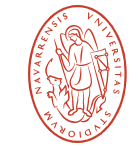
University of Navarra
-
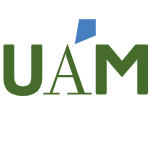
Autonomous University of Madrid
-

Polytechnic University of Catalonia
-

CEU University of San Pablo
-
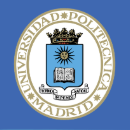
Technical University of Madrid
-

University of Lleida
-
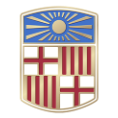
University of Barcelona
-

University of Oviedo
-
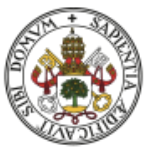
University of Valladolid
-
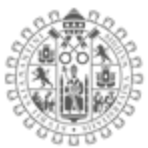
University of Salamanca
-

Mesoamerican University
-

Istmo University
-

Mariano Galvez University of Guatemala
-

Regional University of Guatemala
-

Galileo University
-

Francisco Marroquín University
-

Rafael Landívar University
-

University of the Valley of Guatemala
-

University of San Carlos of Guatemala
-

Technological Institute of Tlaxcala Plateau
-

Golfo University
-

Technological University of South Sonora
-

Technological University of Huejotzingo
-

Tizimín Institute of Technology
-

Chilpancingo Institute of Technology

